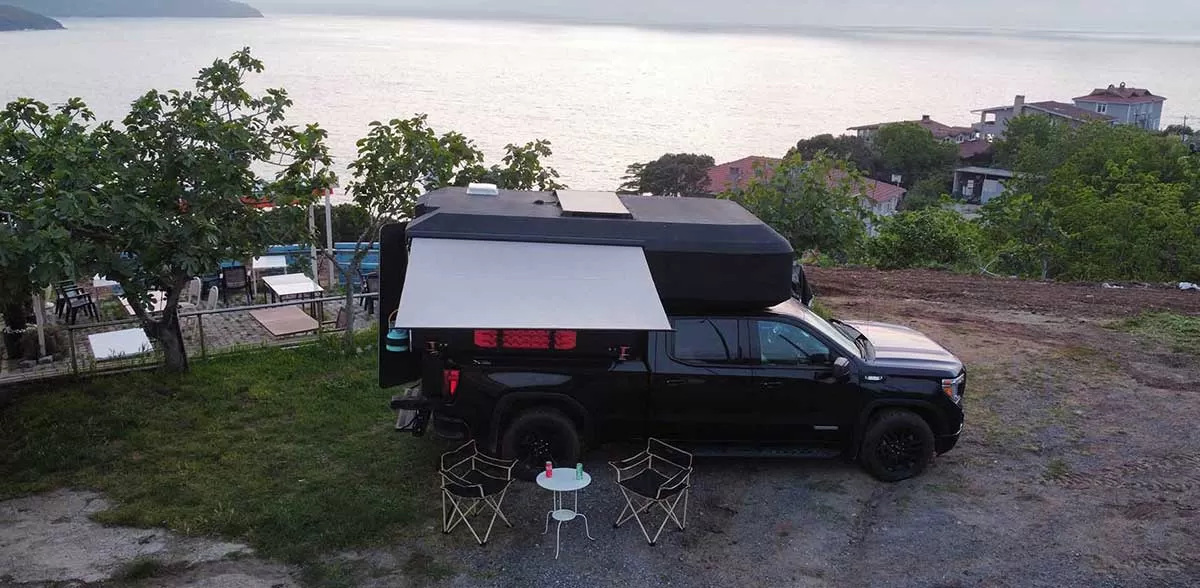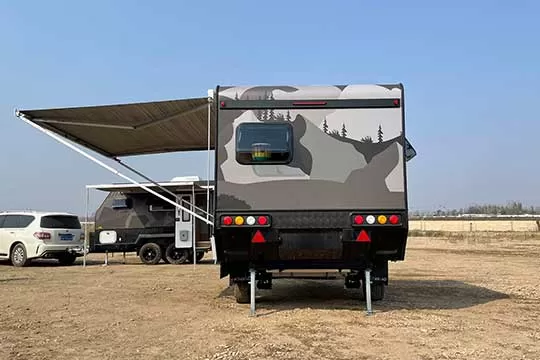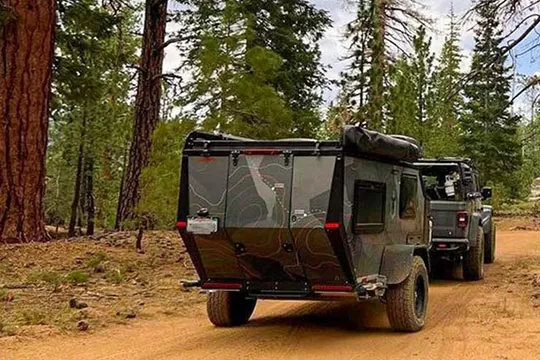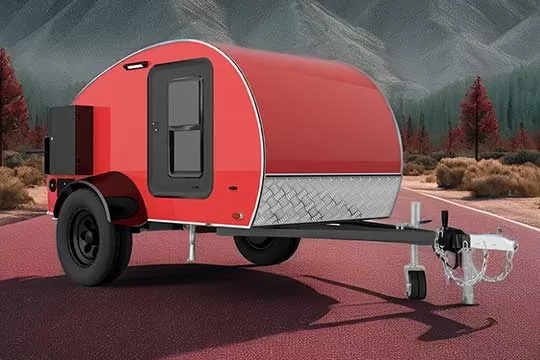Selecting the perfect truck camper for your clients can be a challenging task. By assessing the customer’s needs, exploring the camper types and styles, and considering the compatibility and capacity of the truck, you can confidently select the ideal camper for your dealership.
Towing and handling, features and amenities, and bed size are also significant factors in your decision-making process. Fortunately, manufacturers like Aiymen offer slide-in campers that are fully equipped to cater to a wide variety of buyer preferences. This article will compare and contrast the characteristics of different pickup campers to help you choose a truck camper that provides comfort, convenience, and a seamless camping experience for your clients.
When it comes to finding the perfect truck bed camper for your clients, the most important thing is understanding their lifestyle and camping desires. Let’s break it down step by step.

Assess Lifestyle and Preferences
First, identify the client's camping habits. How often do they plan to hit the road? What types of destinations do they prefer? Do they enjoy off-grid adventures, or do they prefer established campgrounds?
Vehicle Compatibility
Carefully review the client's truck specifications. Note the payload capacity, towing capacity, and bed size. These factors are crucial in determining the size and weight limits the camper can safely carry.
Safety First
Adding a camper will increase the weight of the truck. Always stay within the vehicle's weight limits to avoid overloading, which could compromise road safety.
Comfort Considerations
Consider the level of comfort the client desires during their camping trips. From basic configurations to luxury options equipped with all the fancy gadgets, there are a variety of truck campers available. Match the camper's amenities to the client’s comfort preferences.
Storage Solutions
Evaluate the camper’s capacity for storing camping gear and personal items. Clever storage solutions and adequate compartments can make packing for trips a breeze. Ensure that the camper has enough space to store all essentials.
Explore Different Styles
Research various truck camper styles, such as pop-up, hard-sided, or slide-in. Each style has its pros and cons in terms of weight, space, and insulation. Compare these features with the client's camping style to find the most suitable option.
Types and Styles of Truck Campers
Understanding the different types and styles is essential in exploring the world of truck campers. Let’s break it down into easy-to-understand categories:
Pop-up Hybrid Truck Campers
Pop-up truck bed campers combine the benefits of pop-up campers with the added space and convenience of truck campers. These compact campers are lighter, often lower-profile, and more fuel-efficient than other camper types, even truck campers. The pop-up design is more compact when driving, reducing wind resistance, making it easier to drive, saving on fuel costs, and saving money. When camping, the pop-up design expands to create extra living and sleeping space. Clients appreciate the versatility of pop-up models. Many floor plans offer a queen bed, a small kitchen, and a cozy dining area. Some pop-up campers even come with wet baths, making the client's camping experience as convenient as possible. They can also be equipped with or have solar panels added to provide off-grid power to the camper. This is a highly flexible choice for those new to the RV lifestyle.
Hard-sided Truck Campers
If durability and spaciousness are top priorities, hard-sided campers are worth considering. The walls of hard-sided campers provide insulation and withstand the elements, larger kitchens, dry bathrooms, and ample storage space. Although heavier and less fuel-efficient, hard-sided campers offer higher comfort and convenience for outdoor adventures.
Slide-in Truck Campers
Slide-in truck campers, also known as pickup campers, mount directly onto the bed of a full-size pickup truck. They are versatile, making them an ideal option because they can be easily installed and then removed from the truck, freeing up the vehicle's rear for other uses. Depending on the manufacturer, they come with various features, including small kitchens, cabover beds, and wet baths. Some models even allow customization with additional options.
Flatbed Truck Campers
Designed specifically for flatbed trucks, these campers offer more flexible floor layouts and broader customization options. Compared to slide-in truck campers, these campers generally offer more internal space as they are not confined to traditional truck bed dimensions. The more expansive space provides room for additional options and features. Flatbed truck campers are ideal for long-distance expeditions, backcountry trips, or even full-time road living.
Pros and Cons of Different Truck Campers
Let's analyze the pros and cons of different truck campers clearly and concisely:
Pop-up Truck Campers
Pros:
Lightweight and flexible, easy to handle without exceeding the truck’s payload capacity.
Compact size makes it easier to maneuver in tight areas and more fuel-efficient.
Offers multiple models at reasonable prices, making it an affordable option.
Ideal for off-road adventures, easily navigating rugged terrain.
Cons:
Limited living space may not be suitable for long trips or those with specific space requirements.
Poorer insulation, not ideal for extreme weather conditions or year-round use.
Pros and Cons of Hard-sided Truck Campers
Pros:
Better insulation for extreme weather and four-season camping.
Modern designs with impressive amenities such as queen cabover beds and kitchen facilities.
More space for storing items and outdoor gear.
Cons:
Heavier campers may require trucks with higher payload capacities.
More expensive than pop-up campers and may incur additional costs.
Some models may lack bathroom facilities or offer only wet baths.
Pros and Cons of Slide-in Truck Campers
Pros:
Customizable to fit different truck bed lengths and weight capacities.
Perfectly fits most trucks, ensuring stability and safety while driving.
Versatile living spaces can be adjusted per specific needs.
Cons:
Limited interior living space compared to other styles.
Requires careful consideration of the truck’s payload capacity and its compatibility with the camper’s floor length.
Pros and Cons of Flatbed Truck Campers
Pros:
Designed specifically for flatbed trucks, providing larger living spaces.
Ample storage space and roomy environments for comfortable living.
Ideal for those needing extra equipment space or spacious living quarters.
Cons:
Only suitable for flatbed trucks, limiting choices for non-flatbed truck owners.
Higher cost due to larger size and additional features.
































